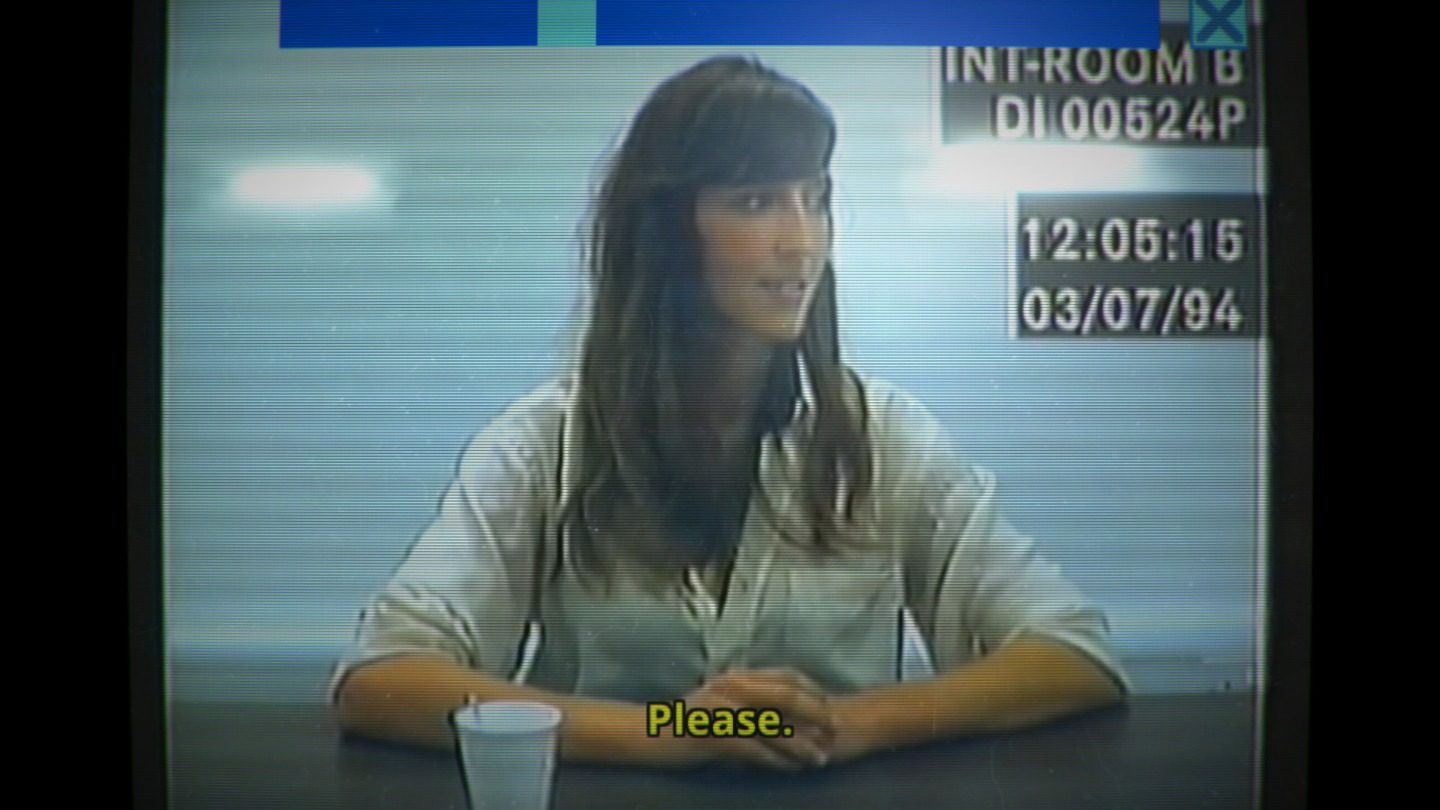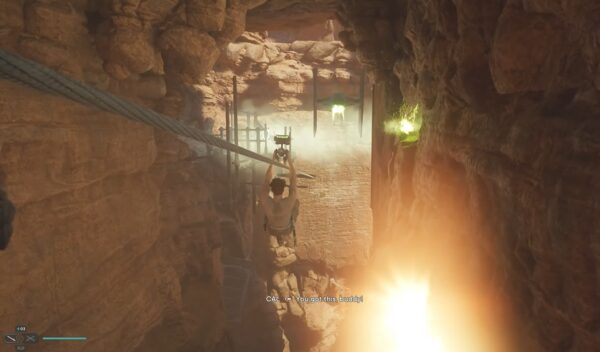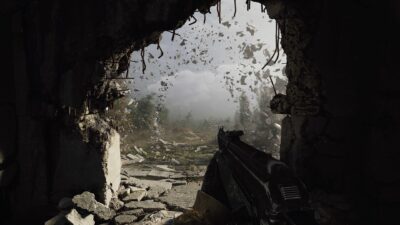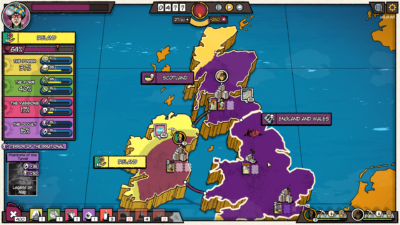
Step into any bookstore, thumb your way to the ‘most popular’ pane on your podcast app, or simply turn on your television, and one thing will become abundantly clear: no matter the medium, people can’t get enough of a good mystery.
Whether it’s the mischief of Agatha Christie’s costumed murderers or Making a Murderer’s sober depiction of the American justice system, the seductive allure of crime fiction can’t be overstated. The exception, it seems, is the biggest media ecosystem of all: video games.
“It really is quite strange,” says Sam Barlow, the mind behind 2015’s indie investigative hit, Her Story. “When I worked with publishers, I would pitch something in the detective genre all the time. My logic was that if you were to launch a new venture almost anywhere in media, you would want to have at least one procedural set up, your NCIS, your Law & Order. In games, you just don’t really see that at all. Eventually, that’s what made me figure, ‘well, everybody else has figured this out. Why can’t I do it?’”

Players use a search engine to plumb the depths of the interview footage, but specificity counts: each string only returns a maximum of five results.
That’s not to say that deductive games don’t exist; most of us are at least passingly familiar with the blaring “objection!” of everyone’s favourite spiky-haired attorney, Phoenix Wright. But as Barlow points out, though the Ace Attorney games have become classics in their own right – as well as popularising the visual novel form worldwide – their investigation mechanics leave a lot to be desired.
The out-of-court scenes come off as a corridor crawl version of point-and-click adventure games like Monkey Island, waiting on the player to uncover every vital clue before moving on to the next act in the sequence. True failure can only occur in the courtroom, where pounding on the wrong piece of evidence enough times will eventually cause the judge to declare your hapless client guilty on the spot.
Unlikely origins
In the early 2010s, coming off a string of positively-received Silent Hill spin-offs and the high-profile cancellation of Legacy of Kain: Dead Sun, Barlow left Climax Studios to pursue his independent dreams.
While trying to determine what kind of game to make, he fell into a vortex of true-crime media, like the first season of the acclaimed podcast Serial, which invaded his imagination and haunted his dreams. That’s when he began to fathom just how barren the market for detective games was – and he wondered if he could do anything to change it.
“At the time, the closest thing I could find to what I wanted was L.A. Noire,” he recalls. “But that game was more interested in making you feel like a cop than actually letting you investigate. I remember the first time I drove a car in that game, I accidentally swerved onto the sidewalk, and hit three people. That just broke my immersion immediately, because it had just become Grand Theft Auto.

In Obra Dinn, you use a magical pocketwatch known as the ‘memento mortem’ to travel back to each corpse’s time of death.
“In real life, I would’ve lost my job for that many times over… There were car chases, gunfights, fist-fights. I’m sure those are all things the publisher wanted, since it was a big-budget game, but it just didn’t add up to what I wanted as a player.”
When Barlow finally decided to strike out with his take on the procedural genre, his core concept was flipping L.A. Noire’s maximalist scale on its head: instead of building a simulacrum of a living world, he strove to make the investigative space as tight as possible.
Inspired by an award-winning episode of David Simon’s nineties TV show, Homicide: Life on the Street, where detectives interrogate the same suspect for the entire hour-long runtime, Barlow cut out the arguably tedious clue-gathering entirely, focusing instead on the electric tension between the intrepid investigators and their elusive quarry.
Unlike Ace Attorney, where players are shepherded from waypoint to waypoint in service of an overarching plot, Her Story has the player embark on a query of their own, using a search engine to sift through interview clips in any order they desire.
While the player has absolute autonomy over their own approach to the interview clips, they are limited by the questions that the police asked the subject, making the game essentially an echo, an investigation of an investigation.
Other deduction games might offer the player a sort of detective’s journal, filling it out for them when they stumble on a key piece of evidence. In contrast, when I played Her Story, I found myself taking copious notes, all to figure out the magical search string that would unlock another vital video clip. (When I stumbled on them six months later in a drawer, I didn’t even recognise their origin – they struck me as incomprehensible ramblings.)
Loose lips
While Her Story asks you to draw your own conclusions from the compelling web of evasions and half-truths that its enigmatic suspect throws your way, never asking you to express your suspicions through the game itself, Lucas Pope’s hit 2018 indie game Return of the Obra Dinn takes a different tack.
Inspired by real-life maritime mysteries like the disappearance of the brigantine Mary Celeste, you play as an insurance agent tasked with determining the fates of the 60 missing crew members now that the moribund ship has hobbled its way back to port. Unlike Barlow’s game, which focuses exclusively on one core crime, Obra Dinn’s overarching tale of betrayal and murder at sea plays out through 60 micro-investigations, where the agent must determine the identity and manner of death of each member of the luckless crew.

Obra Dinn uses a ‘1-bit’ aesthetic in the style of early Macintosh games; Pope says it’s the only part of the game he’s completely happy with.
It might sound hard to believe, but as Pope tells it, he didn’t really set out to make a deductive game. Rather than simply investigating deaths, the original schematic of what became Obra Dinn called for the player to live it themselves, through the eyes of the deceased.
If they managed to succumb to the right source – drowning overboard, falling off a crow’s nest, diving under a falling cannon – they would progress to the next victim, and so forth. (If not, the Grim Reaper would take their soul instead – no pressure.) While it made for an interesting concept on-paper, Pope quickly deemed it too ambitious for his one-man operation, and he proceeded with the still-life approach instead.
“There was no point where I said, ‘I want to make a deductive game,’” Pope says. “It just sort of happened. Whether it’s [2013’s] Papers, Please or Obra Dinn, my design mentality is always to set up a matrix and fill in the columns.
“When you walk on-board that ship, you really know nothing, and that’s a big part of what makes it work. I make games that I want to play, and when I see a list of 60 names, I have this compulsion to fill in those names. I wanted it to snowball for the player to want to solve everything.”
Obra Dinn might be one of the most acclaimed games of 2018, but by Pope’s own admission, its open design and minimal tutorials have proven divisive in some quarters. (For my part, I’ve enthusiastically recommended it to at least half-a-dozen veteran gamers, and only one has made it past the hour mark.) It’s easy to see why: most other deduction games attempt to simulate the ‘grizzled detective’ experience in the same way that Call of Duty grants couch warriors the feeling of crawling behind enemy lines as a trained operator.

Checking a physical map every time you want to go anywhere in The Sinking City might sound like a hassle, but Frogwares thinks that you’ll eventually warm up to it.
When you roleplay as brilliant crime-solver Sherlock Holmes or L.A. Noire detective Cole Phelps, all their training becomes implicit, and you live out the easy fantasy of putting evil-doers behind bars – after all, you don’t learn how to fire a gun from the Weaver stance in your favourite first-person shooter. In contrast, Obra Dinn grants you no such superpowers – though it trains you in its own way, you have to really pay attention to receive its instructions.
“Honestly, I didn’t know if it would work, but now it’s clear that people want more of Obra Dinn,” Pope says. “It’s the deduction element, sure, but it’s also the fact that you come in blind, and the game tells you almost nothing. Over time, though, it gives you everything you need to know. I think the open-endedness is key.
“It looks so impossible when you start, but the game lets you figure it out at your own pace… If there’s one reason I think Obra Dinn succeeds, it’s that it starts with a very basic plot, just a mutiny, before it hits you with the crazy supernatural stuff. It teaches you how to play itself, and that’s why it works.”
Still not for everyone
Despite its stellar sales, Pope says that the ‘on-boarding’ – pardon the pun – is the one element of Obra Dinn that he wishes he’d given himself just a little more time to tweak. From his perspective, if you accidentally button through the prompts that explain the game’s basic mechanics, especially those concerning the labyrinthine book that the player fills out, the entire experience begins to take on water.
“If you miss a tick there, accidentally skip some tutorials, they’re probably going to quit out, give up,” he says. “I wish I had integrated that more, but I think that’s the price you have to pay for that openness.”

As it turns out, The Sinking City has indeed seen better days, so watch your step out there.
Both Pope and Barlow point to the minimal playspace of their investigative games as key to their success – by keeping the actual investigative area as narrow as possible, they prevent players from becoming stuck, or barrelling down the wrong track for hours with no progress.
When it comes to higher-budget fare, like Frogwares’ Sherlock Holmes series, the developers are saddled with a high-wire balancing act. As a mid-range developer based in Ukraine, they have the capability to build out a scope greater than that of Obra Dinn’s tiny ship, but they can’t quite create the living, period-accurate Los Angeles of L.A. Noire.

In The Sinking City, you’ll find yourself talking with folks who aren’t exactly human.
Instead, with their upcoming Lovecraftian deduction adventure, The Sinking City, Frogwares is trying to split the difference by crafting an open-world that doesn’t hold your hand or bombard your UI with hints to where you go next.
“Sherlock Holmes and The Sinking City are two sides of the same coin,” says a spokesperson for the studio. “In Sherlock, everything must be coherent, each case must have a reasonable and logical explanation… In The Sinking City, it’s exactly the opposite due to its supernatural core.
“Our hero, Charles Reed, possesses some quite unique, even paranormal abilities that allow him to see what’s not there, or tap into the past. We found that these mechanics create a completely different experience which you simply wouldn’t be able to find in our previous games.”
A surprising proposition
In order to distance themselves from their previous milieu, Frogwares has taken the somewhat risky step of extracting traditional point-and-click-style puzzles from The Sinking City entirely. Instead, players will be confronted with less contrived logical conundrums that investigators run into every day.
Frogwares believes that the current crop of open-world games are too “hand-holdy,” even going so far as to eschew the genre-standard mini-map that emerged from the formula-defining Grand Theft Auto III back in 2001.
“For example, you know that an unidentified suspect just took an arrow to the knee,” a studio rep says. “Where would you go to learn more about the guy? Maybe… the hospital? And when you are there, you can’t just brute force it to get the information from the archive. You gotta use what you know, connect some dots, and find the right entry.

Like a lot of open-world games, The Sinking City will feature quite a few gun-fights, but not as many as you might expect.
“Otherwise, you won’t get anything useful. So, in a way, we give you the subtle treatment. We only explain how certain things work once, and then it’s up to you to find out how to use them, when, where, and why.”
While these handful of games have managed to pierce the mantle, it’s not at all clear that the deduction games will ever overcome their niche origins to become one of gaming’s première genres. Still, as Obra Dinn and Her Story show, there’s a tremendous amount of potential for even small studios to continue to radically shape the space beyond the starkly linear whodunits that marked its early days.
It’s impossible to be sure if we’ll ever truly see gaming’s Serial-like breakthrough, but for the moment, it’s clear that the future of the genre is sloping upward – like the curve of an archetypal detective’s battered fedora.





